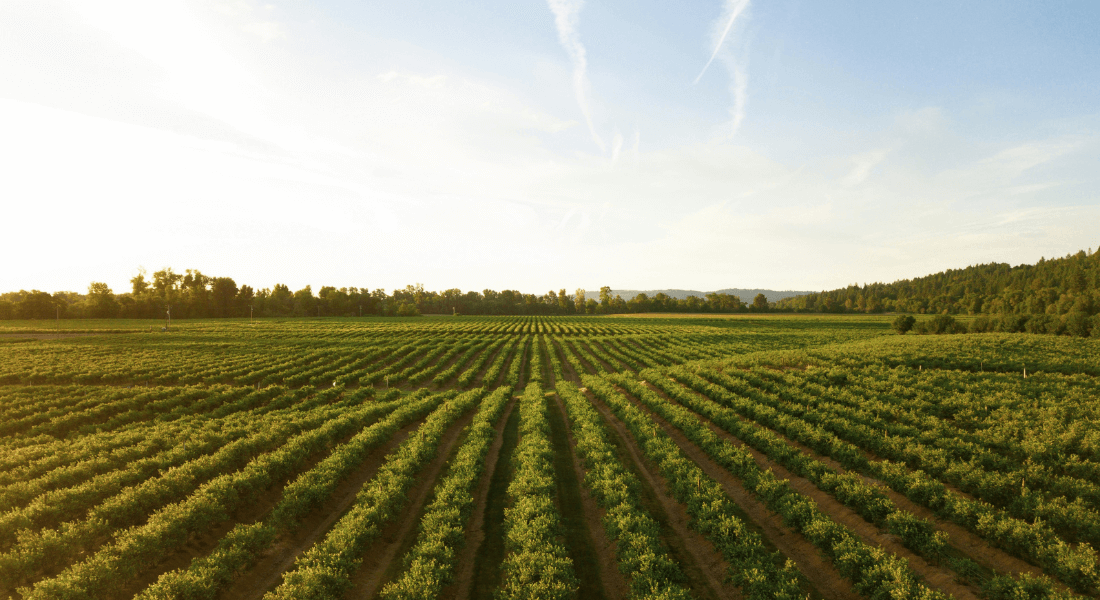500 million DKK to research in resilient crops and ecosystems
New research project harnesses environmental DNA to understand how we can transform future cropping systems and to develop resilient crops in the face of climate change. The project is led by UCPH Professor Eske Willerslev and receives more than DKK 500 million from the Novo Nordisk Foundation and Wellcome Trust over a seven-year period

Climate change threatens biodiversity and agricultural productivity, and both industry and researchers worldwide look for solutions and alternatives to counter the effects. The farms face difficulties growing crops due to environmental changes.
It puts global food security is at risk due to the combined effects of climate change and the biodiversity crisis, and this is exactly what’s addressed in a new research project led by Eske Willerslev. He is Professor at the University of Copenhagen and the University of Cambridge and will lead the ambitious research project AEGIS, Ancient Environmental Genomics Initiative for Sustainability. The University of Copenhagen will establish a global hub of environmental genomics expertise.
The project is funded by the Novo Nordisk Foundation with a grant of up to DKK 500 million over seven years, with an additional DKK 85 million funded by the Wellcome Trust.
AEGIS addresses these pressing issues by exploring the past: how have ecosystems and species adapted to climatic changes, and how can this knowledge be applied to contemporary agricultural challenges?
The programme leverages environmental DNA (eDNA) to forge a new path in sustainable agriculture. The initiative aims to decode and understand how ecosystems and crops responded and adapted to past environmental perturbations and is driven by the aspiration to create a more sustainable future by enhancing crop resilience and agroecosystem sustainability, explains Eske Willerslev.
“By employing ecosystem modelling, we can pinpoint which combinations of species lead to the most durable ecosystems in the past. This knowledge could serve as a blueprint for creating climate resilient food systems, enhancing both the crops we grow and the sustainability of the environments they grow in," he says.
Dean Bente Merete Stallknecht congratulates all the researchers involved and is honored to be host institution for the project.
“This is a massive investment in our food security and a very impressive grant. We are especially proud to establish the project’s global hub at the Faculty of Health and Medical Sciences. I am very happy on behalf of Eske Willerslev and all the excellent colleagues, as well as the institutions involved,” she says.
Goal is to provide global knowledge base and tools
Central to AEGIS is the data engine, a core unit dedicated to extracting and analysing ancient eDNA from sediment cores, offering a window into the Earth’s agrarian history and the response of ecosystems to changes over hundreds to millions of years.
This groundbreaking work will harness the collective expertise in bioinformatics, microbial ecology, plant breeding, and environmental genomics to move scientific frontiers and develop new approaches to design stable and resilient agroecosystems. The ultimate goal is to provide a robust knowledge base and tools for the global community to advance agriculture in the face of climatic adversity.
AEGIS is committed to the principles of the Nagoya Protocol on Access and Benefit Sharing, which focusses on fair and equitable sharing of benefits arising by the utilisation of genetic resources, thereby contributing to the conservation and sustainable use of biodiversity.
Mads Krogsgaard Thomsen, CEO at the Novo Nordisk Foundation, says:
"AEGIS will sequence vast amounts of ancient environmental DNA and make that data globally accessible. By combining the data with novel bioinformatic tools and AI, we can make a quantum leap in our understanding of how ecosystems and individual species function and how they have adapted to environmental challenges, similar to the ones we expect in the near future. This deep understanding of nature and the environment will enable the creation of resilient crops that can withstand and mitigate climate change.”
